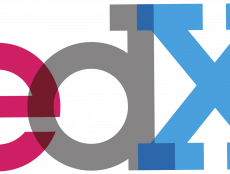
April 15, the IRS’s annual deadline, is now less than two months away, and this means that accountants and bookkeepers nationwide will soon be kicking into high gear. In fact, for most people in the profession early March to mid April is the busiest time of year and for many, it means working long and exhausting days. If you have ever paid someone to do your taxes, you may have wondered what it takes to become a bookkeeper or accountant? If you have an aptitude for numbers, either profession may be a great match and whether you are hoping to become a bookkeeper or CPA, there are many ways to gain both credentials online. Likewise, eLearning for accountants already working in the profession is widely available through business associations, colleges and universities. Finally, if you’re simply good with numbers and enjoy volunteering and feel comfortable doing your taxes, there are opportunities to train online to become a IRS-certified tax volunteer.
What is the difference between a Bookkeeper, Accountant and a CPA?
If you are considering acquiring accounting skills, it is first important to understand the difference between a bookkeeper, accountant and a certified public accountant or CPA. In general, bookkeepers simply record daily transactions in a consistent manner. Many small businesses employ a bookkeeper and most small business owners possess some basic bookkeeping skills. Accountants rely on information generated by bookkeepers to engage in higher level activities, including completing tax returns. Notably, bookkeepers can and do complete individuals’ and businesses’ tax returns, but they are generally not taxation experts nor are they recognized by the IRS. An accountant, by contrast, is trained to deal with both bookkeeping and taxes. Still, an accountant is recognized by the IRS only as an “unenrolled preparer” and therefore, she or he has no official standing with the IRS. A CPA, or certified public accountant, must have completed postgraduate education in accounting and following graduation, worked in a mentor program for at least three years. They are recognized by the IRS and generally do more than prepare people’s annual taxes. CPAs are trained to work with clients year round and are authorized to represent clients in the case of an IRS audit.
eLearning for Bookkeepers and Accountants
 If you are interested in becoming a certified bookkeeper, a great place to start is at the National Association of Public Bookkeepers. The NACPB oversees the Certified Public Bookkeeper (CPB) license, which is the most widely recognized accreditation for bookkeepers performing public bookkeeping services. If you have a CPB license, your clients will know you have the knowledge, skills, experience and ethical training to handle public books. The organization offers online courses on the following subjects: Quickbooks, taxation, bookkeeping, accounting, payroll, Excel and office procedures. The organization also administers the CPB licensing exam.
If you are interested in becoming a certified bookkeeper, a great place to start is at the National Association of Public Bookkeepers. The NACPB oversees the Certified Public Bookkeeper (CPB) license, which is the most widely recognized accreditation for bookkeepers performing public bookkeeping services. If you have a CPB license, your clients will know you have the knowledge, skills, experience and ethical training to handle public books. The organization offers online courses on the following subjects: Quickbooks, taxation, bookkeeping, accounting, payroll, Excel and office procedures. The organization also administers the CPB licensing exam.
eLearning for accountants is also available at many of the nation’s top-ranked business schools. Penn State World Campus, for example, offers a Graduate Certificate in Accounting, as well as a Master of Professional Accounting. Courses offered include auditing theory and practice, business tax planning, strategic cost management, financial reporting, and governmental, non-profit accounting, and forensic accounting and litigation. Notably, both programs are offered in 100% online formats and learners are free to complete the programs on their own time, which means it is possible to even complete the university’s widely recognized master’s degree while working full time.
eLearning through the IRS’s VITA/TCE
 eLearning for accountants is not limited to professionals in the field. If you’re good with numbers and want to help other people complete their taxes, there are many ways to volunteer, most notably through two IRS-supported programs: VITA (Volunteer Income Tax Assistance) and TCE (Tax Counseling for the Elderly). Targeting people who make under $54,000 per year and people over the age of 60, these programs ensure that everyone can complete their taxes in a timely manner with support, even if they can’t fill out their own return or afford to pay someone to prepare it on their behalf. At VITA/TCE Central, volunteers receive online training. VITA/TCE combines downloadable lessons with interactive practice labs and evaluations to ensure that every volunteer tax preparer is fully prepared to offered only the most accurate, ethical and current support to the public during tax season.
eLearning for accountants is not limited to professionals in the field. If you’re good with numbers and want to help other people complete their taxes, there are many ways to volunteer, most notably through two IRS-supported programs: VITA (Volunteer Income Tax Assistance) and TCE (Tax Counseling for the Elderly). Targeting people who make under $54,000 per year and people over the age of 60, these programs ensure that everyone can complete their taxes in a timely manner with support, even if they can’t fill out their own return or afford to pay someone to prepare it on their behalf. At VITA/TCE Central, volunteers receive online training. VITA/TCE combines downloadable lessons with interactive practice labs and evaluations to ensure that every volunteer tax preparer is fully prepared to offered only the most accurate, ethical and current support to the public during tax season.









No Comments